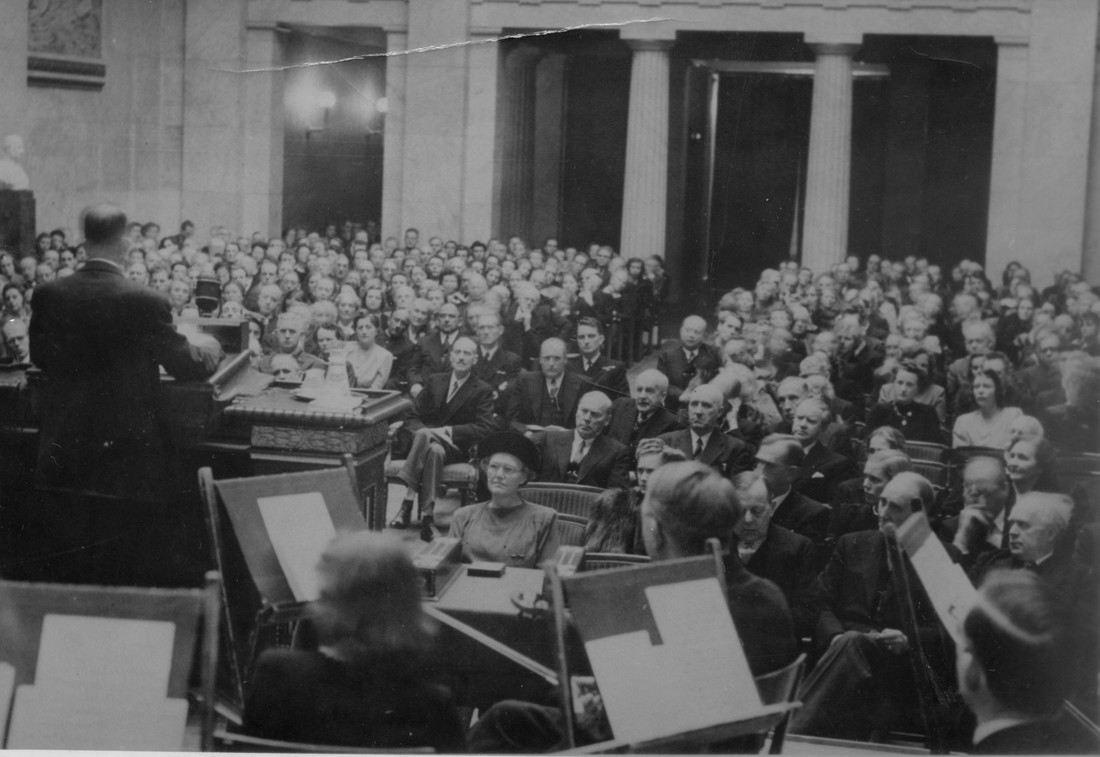
The 1947 Nobel Peace Prize was awarded to the Quakers, represented by AFSC and British Friends Service Council. Archives / AFSC
In 1947, the American Friends Service Committee (AFSC) and British Friends Service Council accepted one of the most prestigious awards in the world—the Nobel Peace Prize—on behalf of Quakers worldwide. The prize recognized 300 years of Quaker efforts to heal rifts and oppose war. In particular, it named the work done by the two recipient Quaker organizations during and after the two world wars to feed starving children and help Europe rebuild itself.
In his presentation speech, Gunnar Jahn, chair of the Nobel Committee, recounted examples of Quaker relief work, pointing out that it was not the extent of this work, but the spirit in which it was performed that was so important:
"The Quakers have shown us that it is possible to carry into action something which is deeply rooted in the minds of many: sympathy with others; the desire to help others…without regard to nationality or race; feelings which, when carried into deeds, must provide the foundations of a lasting peace. For this reason, they are today worthy of receiving Nobel’s Peace Prize" (read the full speech).
Henry Cadbury, who was then chair of the AFSC board of directors, accepted the award on behalf of the organization.
In his acceptance speech, Cadbury stressed the role of the ordinary individual: "You [the Nobel Prize Committee] are saying ... here today that common folk—not statesmen, nor generals nor great men of affairs, just simple plain men and women like the few thousand Quakers and their friends—if they devote themselves to resolute insistence on Goodwill in place of force…can do something to build a better, peaceful world."
The award’s prize money, slightly more than $40,000, was shared equally by AFSC and the British Friends Service Council. Clarence Pickett, then executive secretary of the AFSC, announced that AFSC would invest its share of the prize money in improving Soviet-American relations. The money was used to make a film and publish Quaker proposals for peace between the Soviet Union and the United States.